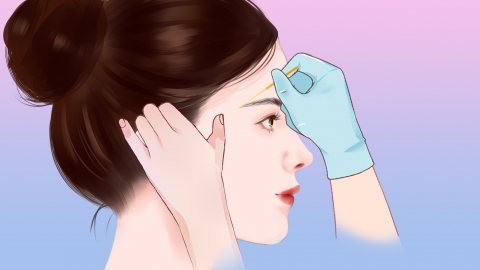What causes temple pain?
Generally, temple pain may be caused by lack of sleep, mental tension and stress, migraines, tension-type headaches, hypertension, and other factors. The solution depends on the specific cause involved. Prompt medical attention is necessary, and treatment should follow medical advice. Details are as follows:

1. Lack of sleep: Prolonged staying up late, poor sleep quality, or severe sleep deprivation may cause the cerebral cortex to remain in a fatigued state, leading to temple pain accompanied by mental depression. It is important to adjust sleeping habits timely and ensure sufficient sleep time daily; adults are generally advised to sleep 7-9 hours per day.
2. Mental tension and stress: Remaining in a high-pressure environment for a long time may cause sympathetic nerve excitement, leading to dull temple pain, dizziness, and other symptoms. This pain is usually associated with excessive psychological pressure, over-tension, or anxiety, which may lead to excessive brain consumption, thus causing temple pain. Stress can be relieved through deep breathing, meditation, listening to music, etc.
3. Migraine: Migraine is a common type of headache, usually presenting as one-sided headache, which may be accompanied by symptoms such as nausea, vomiting, photophobia, and phonophobia. Temple pain is one of the common manifestations of migraine, which may be related to genetic factors, neurotransmitter abnormalities, vascular dysfunction, and other factors. Nausea may also occur. Anti-inflammatory medications such as ibuprofen tablets, indomethacin tablets, and nimodipine tablets should be used under the guidance of a physician.
4. Tension-type headache: Tension-type headache is one of the most common types of headache, usually caused by tension in the head, neck, and shoulder muscles. Maintaining poor posture for a long time or mental tension may lead to tension-type headaches, which manifest as tight, band-like pain on both sides of the head, but may also present as one-sided temple pain, accompanied by dizziness. Medications such as aspirin tablets, acetaminophen tablets, and carbamazepine tablets can be used under medical guidance for treatment.
5. Hypertension: Hypertension may cause blood pressure fluctuations in the body, leading to local dull pain in the temple area and other symptoms. This is usually associated with unhealthy lifestyle habits, such as high-salt diet and lack of exercise. Hypertension may also cause cerebrovascular disease, further worsening headache symptoms, and may be accompanied by palpitations. Antihypertensive medications such as nifedipine tablets, methyldopa tablets, and captopril sustained-release tablets should be taken as directed by a physician to lower blood pressure.
During treatment, it is important to follow medical instructions, take medications regularly, and pay attention to adjusting lifestyle habits and dietary patterns to promote recovery.










